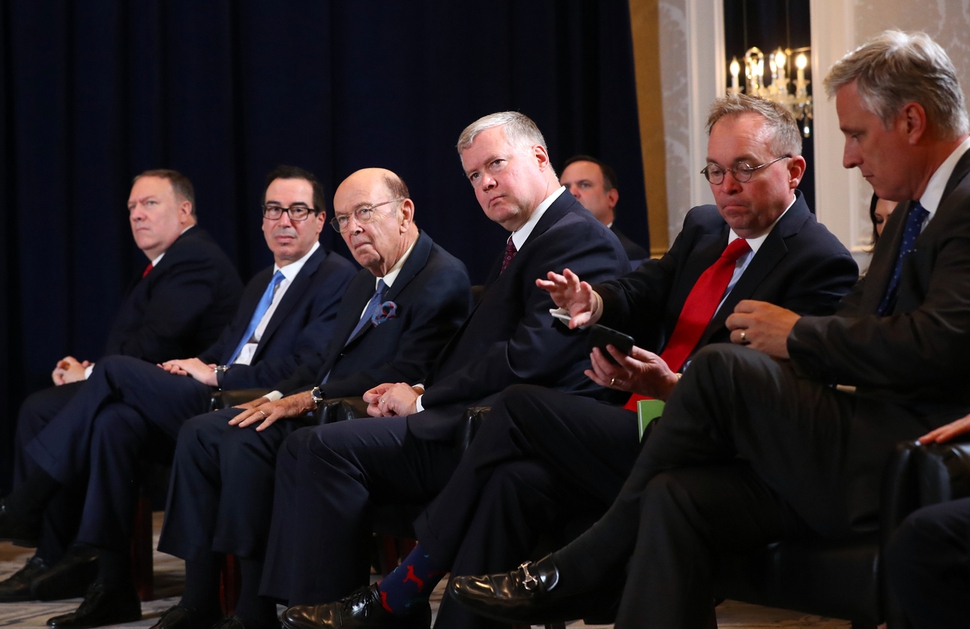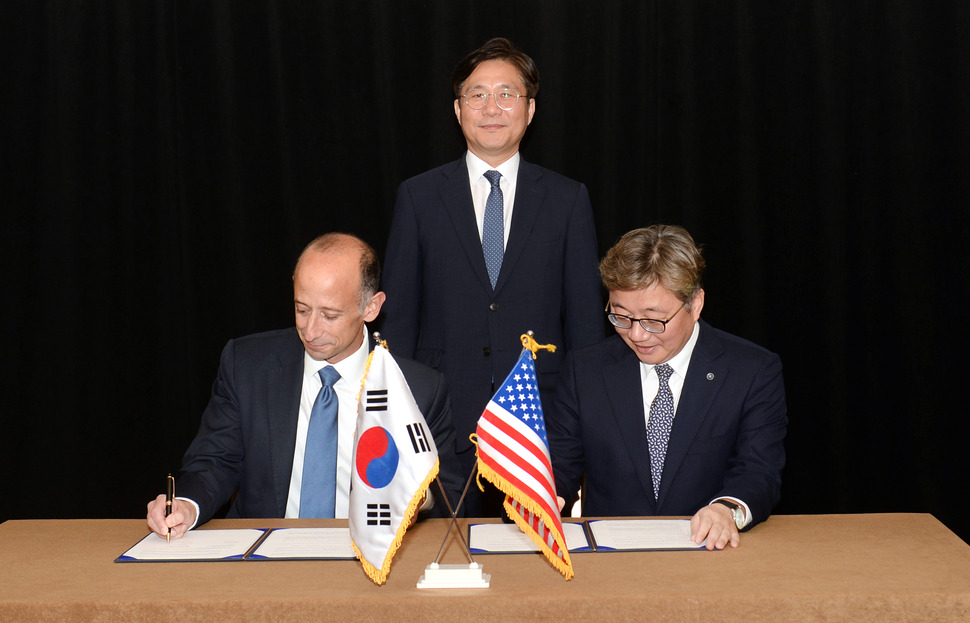 |
|
The US delegation to the South Korea-US summit in New York on Sept. 23. Pictured from the left are US Secretary of State Mike Pompeo, Secretary of the Treasury Steven Mnuchin, Secretary of Commerce Wilbur Ross, Special Representative for North Korea Stephen Biegun, Director of the Office of Management and Budget Mick Mulvaney, and National Security Advisor Robert O’Brien. (Blue House photo pool)
|
S. Korean president’s message seen as call to leave behind unilateral partnership of past
South Korean President Moon Jae-in stressed the importance of a “reciprocal alliance relationship” in his ninth summit with US President Donald Trump on the afternoon of Sept. 23. His message read as a call to leave behind the unilateral support and dependence that have characterized the alliance in the past and form a new relationship of “give and take” in areas such as the economy and security. It also echoes the position recently shared by the Blue House, which has signaled its hopes to “upgrade” the South Korea-US alliance. Explaining the outcome of the summit, Blue House Spokesperson Ko Min-jung said the two leaders had “agreed to carry on and strengthen the South Korea-US alliance in a reciprocal and comprehensive direction, including economic cooperation between both sides.” The summit on Sept. 23 included contracts for South Korea’s introduction of US-produced LNG and cooperation between companies on both sides to develop self-driving vehicle technology, which are being seen as concrete attempts to reflect the two sides’ commitment to expanding economic cooperation beyond trade into energy and new growth industries. A Blue House official said the two leaders reached an agreement to “help strengthen the South Korea-US alliance by achieving mutual and satisfactory results at the 11th round of defense cost sharing negotiations.” During the summit, Moon “explained in detail the contributions the South Korean government has made to the South Korea-US alliance and stable stationing of US Forces Korea, including increases in the defense budget and purchasing of US weapons and a steadily rising share of defense costs,” the official said – emphasizing that the “reciprocity” in the South Korea-US alliance extends to the area of security in addition to the economy.
 |
|
South Korean Minister of Trade, Industry, and Energy Sung Yoon-mo (center) observes as Korea Gas Corporation (KOGAS) President Chae Hee-bong and Robert Lawson, chairman of gas marketing at BP, sign a long-term purchase deal for liquefied natural gas (LNG) on Sept. 23. The Westin New York at Time Square hotel. (provided by the Ministry of Trade, Industry, and Energy)
|






